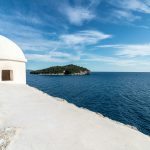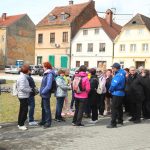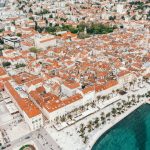ZAGREB, March 14, 2018 – Commenting on President Kolinda Grabar-Kitarović’s statement that “after World War II, many Croats found a space of freedom in Argentina where they could testify to their patriotism and express their justified demands for the freedom of the Croatian people and their homeland,” former Foreign Minister Vesna Pusić of the GLAS party said on Wednesday that it was “unheard of for the president to speak against the constitution of her own country.”
“I consider that statement absolutely incomprehensible, except perhaps in the context that the president is like whoever she is with. If she is surrounded by a certain type of people, she attempts to adapt and say what they like to hear and she changes that depending on the audience,” Pusić believes.
Pusić underscored that this was absolutely inexplicable and that the president should explain herself to Europe and the rest of the world, and to Croatia first.
She wondered if the president supported Nazis and attacks on the Croatian Constitution. “We are talking about the historical foundations (of the Constitution) here… not about some constitutional provision on which you can launch an initiative. This is a question of our identity, of who we are as a society, we cannot be semi-fascists. We have to be clear on that matter,” Pusić underscored.
Social Democrat MP Predrag Matić called President Grabar-Kitarović a “walking scandal,” adding that he was “ashamed that she is Croatia’s president.” “Wherever she goes, she looks around and then makes a statement that she considers to be suitable,” he said, adding that “anything could be expected of the president.”
Matić recalled Grabar-Kitarović’s statement that a lot of water would flow down the Danube before the Croats become friends with the Serbs, and “three days later she played host to (Serbia’s President Aleksandar) Vučić.”
“Remember what she said about Fascism and anti-Fascism, and then she travels to Argentina and, addressing people who have never been to Croatia and who, when showing a map of Croatia include a large part of Bosnia and Herzegovina and Serbia in it, makes a statement which, if Angela Merkel were to make, would result in her express replacement and her ending up in jail,” Matić said.
He recalled when the president spoke about Serbs during Vučić’s visit, she said that she was their president, too, yet before that she said that they were free to leave because Croatia was a free country.
The head of the SDP’s parliamentary group Arsen Bauk earlier in the day condemned the president’s statement, ironising it and noting that people like “Ante Pavelić, Dinko Šakić, Ivo Rojnica, Branko Benzon and many other Ustasha emigrants as well testified to that space of freedom and patriotism.”
“After WWII, many Germans sought and found a space of freedom in Argentina where they could testify to their patriotism and express their justified demands for the freedom of the German people and homeland… including Adolf Eichmann, Josef Mengele…” Bauk said.
He explained, however, that not all Croats who went to Argentina prior to and after WWII were members or officials of the Ustasha movement, but noted that, given the context of the president’s statement and some statements made after her address, she needed to explain it.
Defence Minister Damir Krstičević and Croatian Democratic Union (HDZ) international secretary Miro Kovač did not wish to comment on the president’s statements made during her visit to Argentina.
After the Second World War, many Ustasha officials fled Croatia and went into hiding in Argentina.








